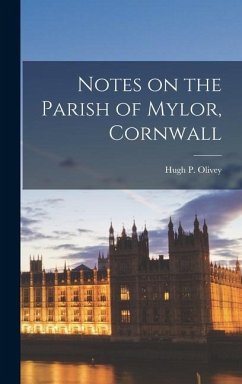
John Betjeman and Cornwall

PAYBACK Punkte
14 °P sammeln!
Quintessentially English, Betjeman was an 'outsider' in England - and doubly so in Cornwall where he was a 'foreigner'. And yet, as this book describes, Betjeman also strove to acquire a veneer of 'Cornishness', cultivating an alternative Celtic identity, and finding inspiration in Cornwall's Anglo-Catholic tradition.







![Charles Lamb: A Memoir. By Barry Cornwall [pseud.] Cover Charles Lamb: A Memoir. By Barry Cornwall [pseud.]](https://bilder.buecher.de/produkte/65/65220/65220875n.jpg)






